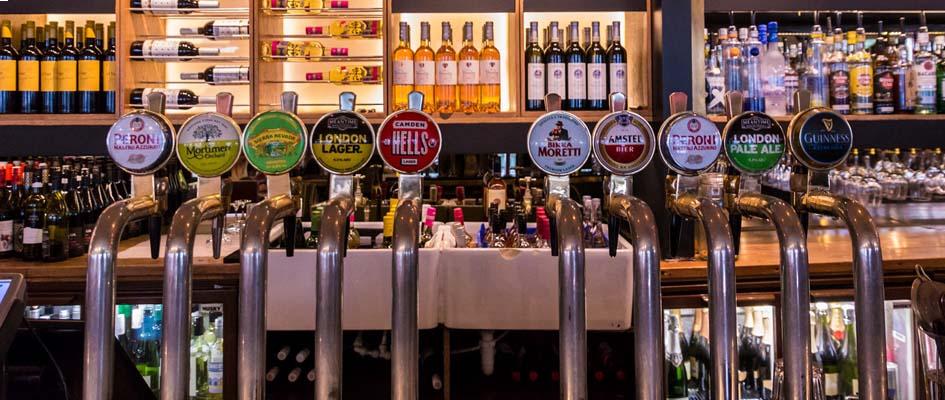In last week’s blog, we outlined the first few steps you might make before embarking on the journey of buying your very own pub. We highlighted the importance of being aware of the wider financial setting for the pubs industry presently and concluded that despite an overall downturn in the industry, the market conditions might be right for finding a niche opportunity and developing it fully.
This time, we are going to outline the first steps you can take to finding your dream pub – and how different kinds of businesses will change in their day-to-day running.
Location, location, location
There are generally three options for the location for your chosen pub venture, each bringing its own set of advantages, challenges and opportunities. After all, running the Old Vic will be a different beast to running the Rovers Return…
First, there’s the country pub, seen as the ideal lifestyle choice for many would-be landlords. Challenges here might include making sure your establishment is a “destination” for punters and easy to access, if only by car, and relying more heavily on the “dry” side of your income (i.e. food, rather than drink, will be your big profit maker).
Suburban pubs are a growing breed in the UK and are often far more community-orientated given that they often serve many hundreds of homes. These pubs are generally more reliant on passing footfall, often from local residential estates or the like, but can foster a loyal and dedicated drinking customer base.
Finally, city pubs are different yet again. These tend to be found in choice locations and are often far more expensive to purchase and run as a result, with council taxes and similar rates liable to apply. There is also far more competition – there are 3,615 pubs in London alone, for example – so differentiating your pub can be crucial here. Are you operating a trendy, gastro-pub, or a bespoke microbrewery, or an old fashioned working people’s boozer?
Identifying the pub’s locale and clientele and developing a strong brand off the back of it can be crucial to its success, so make sure to bear this all in mind when finding a new opportunity.
Terms of engagement
With that first criterion out of the way, one of the main decisions facing landlords is how they would like to run their business. In general, there are three different types of ways in which pubs will conduct their business: freehold, leasehold and tenancies.
A freehold property, as in residential cases, is the most expensive option available to a buyer. A freehold purchase means that you are buying the property and business outright. It also means that you are free of any pre-existing commitments to one supplier or brewer and that you control all of the pub’s finances. The flipside is, however, that good leasehold pubs are expensive, (usually two or three times as much as its annual turnover), hard to find and mean you are also liable for any repairs in the future.
Leasehold properties are the mid-price option, available either from an outgoing leaseholder or, if a brand-new lease, from a pub company or brewery for a set amount of time. Though it is common for you to have to stock certain beers, this is one of the most flexible options available: prices are lower (typically £50,000 - £250,000), a decent return on investment is available and leases last anywhere from 10 to 25 years. Minimum terms are usually two years, with any sale requiring approval from the brewery or pub company, however.
Finally, tenancies are the cheapest and most beginner-friendly option. These generally last for three years at a time, meaning you can have the opportunity to try your hand at the bar without a serious commitment, and require an initial investment of between £15,000 and £50,000 which will net you the pub fixtures, fittings and stock. This route can be inflexible, however, as there is almost always an obligation to buy beer or food from the existing landlord.
Research, research, research
Once you have decided what you can afford and the location and style of operation you are seeking, it’s time to hit the books. Research each of the opportunities available to you in as much detail as you can, considering the pros and cons of each.
Financial considerations are also important, and consulting a specialist property agent, finance broker or accountant can be a good move. Most major banks are happy to lend on freehold or leasehold pubs – offering 70 per cent and 50 per cent loan-to-value, respectively and in general – provided your individual status is up to scratch.
Even more crucially, you should visit each property and general area before making a purchase decision, and decide whether your business will thrive there. Does this tiny countryside village need an edgy, hipster pub? Or would you be better served in a big city?
Once you have your dream opportunity lined up, and have done your research, we can move on to the next step: getting your watering hole up and running.


